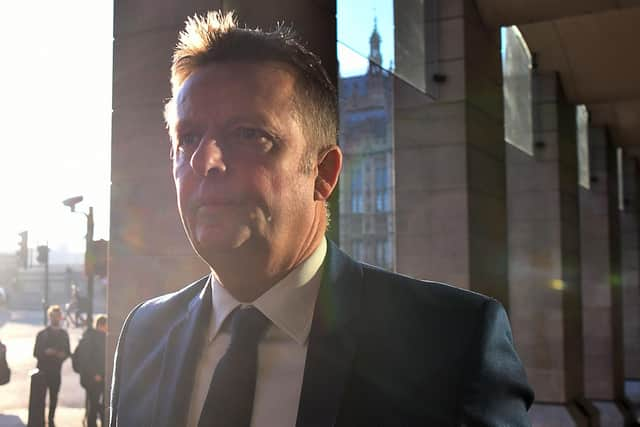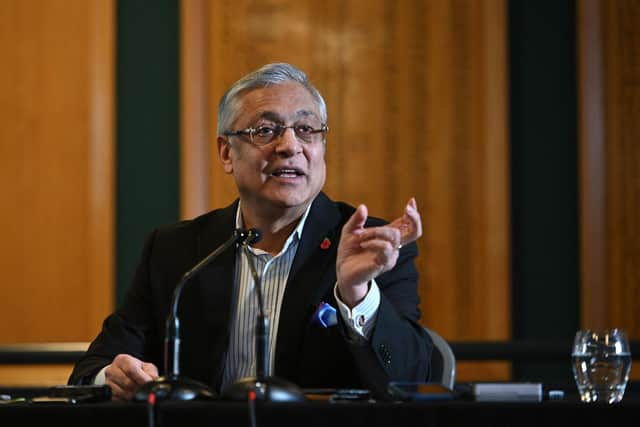Cricket Regulator can ensure another Yorkshire CCC-style car crash never happens again - Chris Waters
Why, the hapless character in the Pink Panther series, memorably portrayed by Peter Sellers, would surely have been aghast at the bungling efforts of Roger Hutton, Lord Kamlesh Patel, Tom Harrison et al in a devastating saga for all concerned.
Clouseau, who routinely fell down stairs, destroyed priceless pianos and caused people to be shot in the buttocks, among myriad calamities, was a passed master of the chaotic investigation.
Advertisement
Hide AdAdvertisement
Hide AdAs such, he would have been the perfect person to head-up the compromised Squire Patton Boggs probe implemented by former Yorkshire chair Hutton in 2020 (Hutton had previously worked for the firm), or the even more egregiously compromised ECB investigation that followed (on the watch of then chief executive Harrison), after the governing body had suspended Yorkshire from hosting international cricket pending reforms undertaken by Lord Patel, its own agent of transformation.


And that’s before we’ve even mentioned our old friends at the DCMS select committee, a body so inexpert that it, too, would no doubt have driven Clouseau’s long-suffering superior Chief Inspector Charles Dreyfus to the brink of insanity.
The proof of the pudding will be in the eating, of course, but let it be hoped, nay demanded, that the launch on Monday of a new regulator for the game – the snappily-titled “Cricket Regulator” – ensures that such a car-crash can never again happen.
Critics have questioned how independent this regulator will be and, in fairness, they are right to do so.
Advertisement
Hide AdAdvertisement
Hide AdIndeed, it may have been noted by the eagle-eyed that the ECB did not actually refer to the regulator as being “independent” when announcing its launch – and despite many media outlets describing it as an independent regulator.


Rather, of a body that will be responsible for monitoring compliance with cricket’s regulations, enforcing adherence to them and providing relevant information/education, dealing with such as anti-corruption and anti-discrimination, the ECB said only that the Cricket Regulator will be “ring-fenced” from the rest of the governing body.
This distinction is important; indeed, only the Cricket Regulatory Board – which will oversee the Cricket Regulator – will be independent going forward, with ECB people still present on the regulator, even though its chair will, from next year, be appointed through open recruitment.
As ever, the situation is complex, the sensitivities never far from the surface, and the Cricket Regulator – a response to a recommendation in the Independent Commission for Equity in Cricket (ICEC) report earlier this year – is not a perfect solution to that complexity.
Advertisement
Hide AdAdvertisement
Hide AdAt least the game’s regulator is no longer its promoter – a glaring discrepancy that the Yorkshire case highlighted – and there will no doubt be many learnings and tweaks going forward.
But it is also beholden on critics to give the ECB/the regulator a chance, and to recognise the work that the ECB has done – is doing – to try to improve things.
The game has bent over backwards in recent times – the ICEC report essentially described it as rotten to the core, although that’s another story in which questions of independence are no less pertinent.
It is important to note, too, that the regulations don’t change with the appointment of a regulator – only the body enforcing the regulations.
Advertisement
Hide AdAdvertisement
Hide AdShould a Yorkshire case happen again, for example, it wouldn’t automatically mean that, from the start, the matter would be taken straight out of the accused club’s hands and pass solely to the regulator.
There remains a clear separation between what an employer might do and what a regulatory body might do, the difference being that the regulator could step in on day one if it so determined, or even investigate in parallel depending on the specific case/allegations.
In reality, if a Yorkshire case did happen again, and especially against the type of febrile backdrop on social media that we saw at the time, it is inconceivable that we would now have a club dilly-dallying about amid accusations that it is marking its own homework; a regulator would now put an end to that.
Hindsight, of course, is a wonderful thing. Much of what happened in the Yorkshire case could – and should – have been avoided.
Advertisement
Hide AdAdvertisement
Hide AdIt is now time to get behind the ECB, the regulator, and the good intentions that prevail to ensure that cricket is as fair and as equitable as possible.
The Yorkshire story was soured by so many horrendous mistakes that it is impossible to know where to start; if only Inspector Clouseau had been on the case …